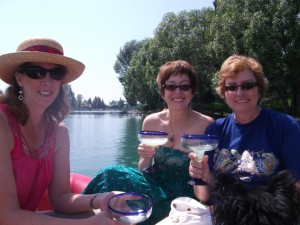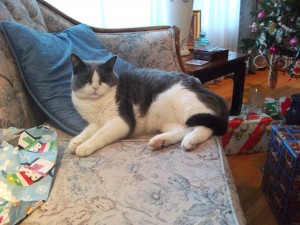January was a productive month of writing for me. After the holidays, I plunged into the second draft of my novel-in-progress. In the past, I thought I enjoyed writing first drafts best for the discovery and because it doesn’t matter if your sentences are shoddy or if everything is accurate and fits together perfectly. With Deadly Fall, I found some of my revision drafts harder work than the initial one and took longer to write.
Now, I’m finding this second draft not nearly as difficult as pulling a story from the blank page. It’s going more quickly than I had expected and I’m surprised to find myself past the mid-point. I think much of this is due to what I learned about structure and pacing while revising and editing Deadly Fall. This enabled me to get it more right the first time. At least, I hope I did and I’m not deluding myself in this revision.
All novels, including contemporary ones, require research, that is, information you want in the book but don’t know enough about. While writing, I try to limit my research and often insert guesses I’ll look up later. This way I can get to the end of the novel and not latch onto research as a writing avoidance tactic.
After the first draft of this current book, I felt there were two matters I needed to know more about before getting into the second draft. The first was insurance. My protagonist, Paula Savard, is an insurance adjuster. I didn’t do a lot with her profession in Deadly Fall, but in this second book her job is central. I worked in insurance some thirty years ago and my knowledge of it has faded.
At a Reading I gave last November, a man in the audience mentioned he was retired from an insurance career. After the question and answers, I gave him my business card and invited him to e-mail me, which he did. I sent him numerous insurance questions. He answered in detail and assured me this wasn’t a burden; he enjoyed reminiscing. I did too and found it fun to refresh myself with the familiar insurance information and lingo.
A second topic prominent in the novel is hoarding. This was inspired by my uncle and the details in the first draft came from my experience of him and other family members including, a little, myself. To get a more professional and broader take on the subject, I read two library books and have a memoir to read next. I wrote copious notes on the psychology of hoarders, their personality profiles and details about their hoarded homes. Awhile back, for research, I also watched the Hoarders TV show, which features a real-life hoarder each week and goes through his or her cleanup. Why do people enjoy watching these things? For me, this is too close real life.
While revising my first draft chapters I’ve been surprised – pleased, alarmed? – by how much I knew about hoarding before going in. I’ve enhanced details, but this research was more about confirming my experience rather than correcting or developing information, as my insurance research did.
Also while writing, I created a folder of various research matters I plan to tackle when I’ve finished this draft. I think these are all minor matters that won’t impact the story much.
I’m currently reading The First Stampede of Flores Ladue, a biography about the founding of the Calgary Stampede, another important feature of my book that I wrote from experience. As with hoarding, this research isn’t essential, but it might lead to my adding a few more pertinent details.




